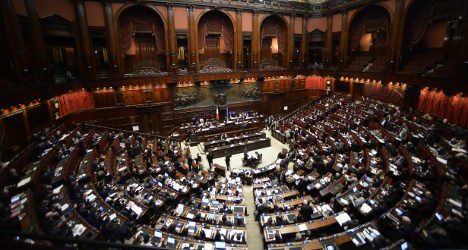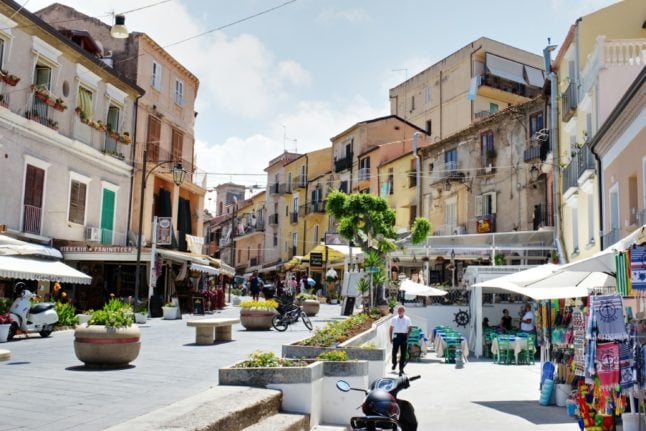Despite its dire economy, Italy’s politicians are not exactly feeling the pinch.
One senator, formerly the governor of Milan, went about his official business in a €270,000 BMW.
Regional politicians have also come under scrutiny. Earlier this month the regional council of Emila-Romagna was put under investigation for its suspected expenses, claiming for everything from cheese to toilet breaks.
Politicians who are elected to parliament, with a seat in Rome, are generously rewarded.
According to Verzichelli, an MP's monthly income is €10,400. Around half of that is base salary, with the rest being made up of allowances. Meanwhile, €3,500 of the lump sum is set aside to pay for accommodation while MPs work in the capital.
Politicians are usually well-paid, but the income of Italian MPs is exceptionally high according to Verzichelli.
“In studies done in recent years, it has emerged that the financial cost per capita of each Italian MP is around double that of a German MP, and around three times that of a French MP,” he says.
“This does not mean that Italian MPs earn twice as much as the Germans, but the ‘cost’ is double, considering the taxes on the various incomes, the deductions, etc.”
At the end of 2012 the Italian politicians agreed a cut of 10 percent, but Verzichelli says their earnings remains an “enormous waste of public resources”.
“Italy is without a doubt a country in which politicians, in respect to the rest of the population, earn a lot. Too much,” he says.
For Verzichelli, the token 10 percent pay cut will have little impact on the true cost of Italian politics.
“It is clearly a waste that can only be tackled with structural reforms of the system, not with slight changes to the marginal aspects of MPs’ allowances,” he says.
This means getting rid of some politicians entirely: “I would prefer to reduce the total number of MPs in Italy…There are 630 MPs and 315 elected senators, in addition to senators for life.” Comparatively, Germany has 630 politicians in its entire parliamentary system.
With a fragile coalition government holding the reins of power, cutting back on parliamentary seats is unlikely to happen any time soon.
While political progress remains at a near standstill, Verzichelli says transparency should at least be improved.
“Oblige MPs to produce receipts of their spending, which the administration of the chamber of deputies can reimburse. This is a practice asked of public officials,” he says.
This may not sit well with some Italian politicians, as corruption scandals continue to plague politics. Just a week ago Silvio Berlusconi, three-time prime minister, was indicted on charges of bribing a senator.
Unsurprisingly, 89 percent of Italians believe their politicians are corrupt.
While Verzichelli says MPs salaries are undoubtedly too high, he says the principle of decent pay for public representatives is legitimate.
But the figure of €10,400 stands in stark contrast to the income of many Italians. According to national statistics agency, Istat, 12.7 percent of Italians were living in the relative poverty, with a monthly income of €991 shared between two people.
“We must increase the salaries of normal people,” says Verzichelli. “Those salaries are very low when compared with other European countries, and too far from the salaries of elected politicians in parliament or those in institutions.”
SEE ALSO: Italian MPs among highest paid in Europe
Don't miss a story about Italy – Join us on Facebook and Twitter.



 Please whitelist us to continue reading.
Please whitelist us to continue reading.
Member comments